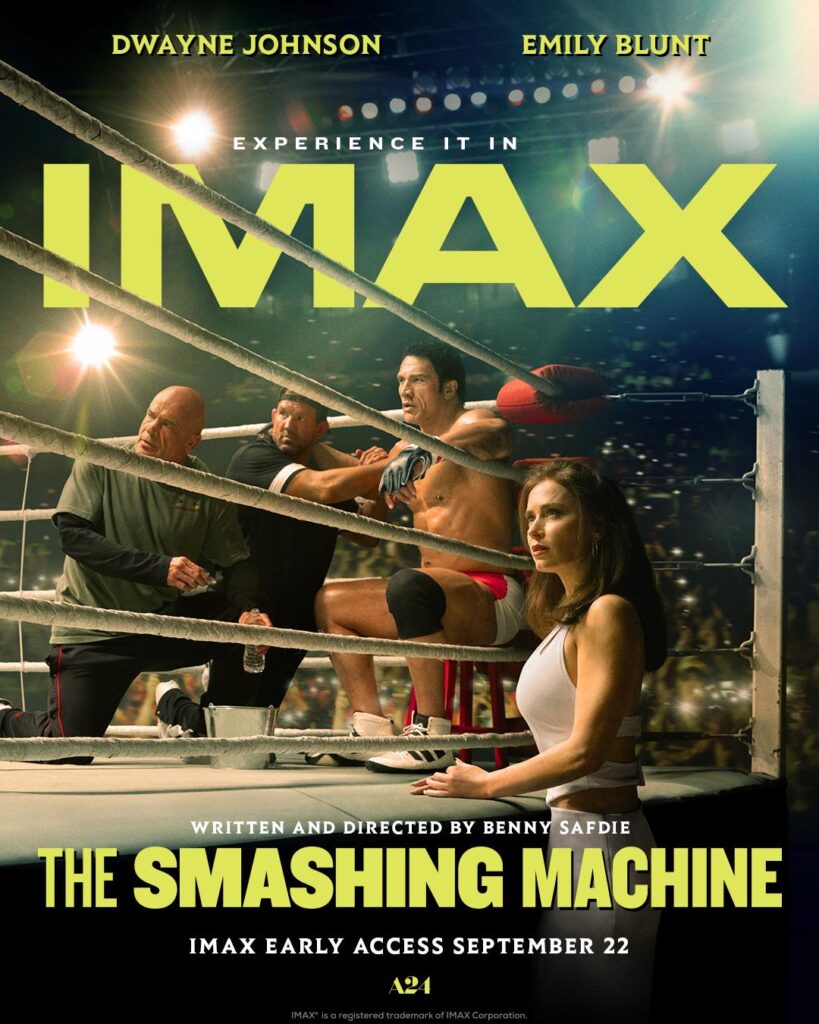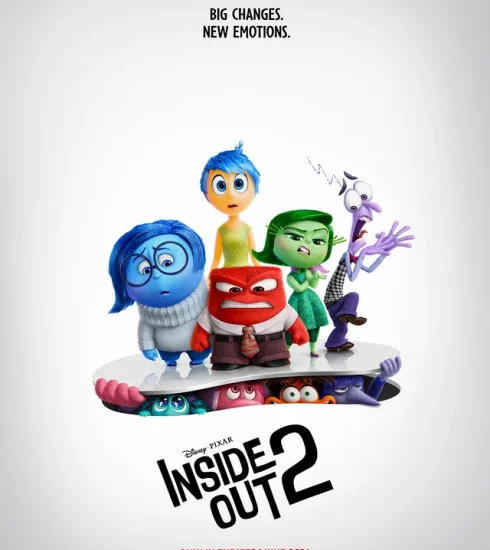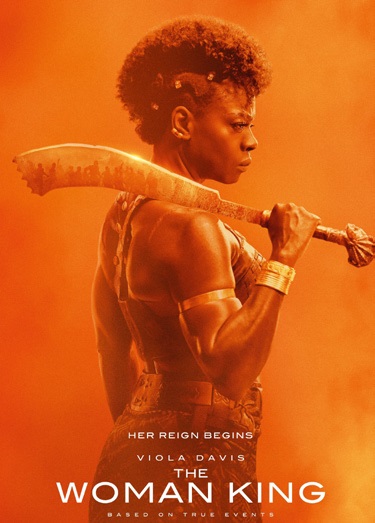Movie Review: The Smashing Machine
Dwayne Johnson gives the performance of his career in The Smashing Machine. He plays mixed martial arts (MMA) fighter Mark Kerr, and in the role, Johnson is a completely different person, worlds away from The Rock, his globe-dominating movie star persona, even if he still has that massively hulking, physically imposing physique. Underneath all those gigantic muscles, The Rock slips away, and he’s all Kerr.
But writer-director Benny Safdie, in his first movie without his brother and filmmaking partner Josh, works so hard to sand away the conventions of typical sports biopics that he’s left with what feels more like a documentary than a big-screen drama.
The wild highs and lows of Hollywood storytelling are evened out, and in the process, The Smashing Machine loses its emotional sweep, not to mention its focus. You’re never quite sure if you’re watching a story about Kerr, about his topsy-turvy relationship with his girlfriend Dawn (Emily Blunt), about his friendship with fellow fighter Mark Coleman (Ryan Bader), or about the rise of the Ultimate Fighting Championship (UFC) itself.

Kerr is a pioneering MMA fighter who hails from Toledo, Ohio. We first meet him in 1997 when he’s competing in a freestyle wrestling tournament in São Paulo, Brazil, fighting his in-ring foes with a simple guiding principle: “Am I going to hurt him before he hurts me?” Usually, it’s the former.
Kerr gets so good at dominating his opponents that losing becomes unfathomable to him, so much so that when he finally does lose a match, he’s shattered to his core. In a locker room breakdown after a fight, he buries his head in his hands and cries uncontrollably, openly weeping with no mechanism to stop the flow of tears. A lesser portrait of a fighter would have him destroying the locker room, throwing chairs and threatening bystanders. But this loss is so destructive to Kerr at his core that all he can do is cry.
Kerr’s life begins to crumble with the loss of his identity as the unbeatable, unbreakable smashing machine, and he falls into a haze of opiate addiction, staring blankly into space in the living room of the Arizona home he shares with Dawn. This complicates their already tumultuous relationship, as she has her own emotional baggage and neediness issues. When he eventually sobers up, she continues partying, furthering the gap between them.
Meanwhile, an in-ring comeback looms, and Kerr seems to be on a collision course with his buddy, Coleman. Or maybe that’s what decades of Hollywood storytelling have groomed us to believe: Safdie, who also edited the film, is constantly veering away from expectations in the narrative. The problem is his zags don’t lead us down more interesting paths than the zigs would have. He’s uprooting our expectations, but not leading us anywhere new or unexpected as an alternative.
Within this framework, Johnson is magnificent. His charm levels have always been off the charts, with a magical smile that could light up a city skyline. But here he’s calling on something different, something from within: Kerr is friendly but reserved, speaking in deliberate rhythms, and he has a quiet softness to him where Johnson has hyper charisma running through his veins. It’s a real transformation for Johnson, who hasn’t even hinted at this kind of depth or character work in his 20-plus years as a big screen star (he came closest in Pain & Gain), and it could be a reset for him, if he’s looking for one.
For Safdie, who, along with his brother, made a series of unnerving, anxiety-riddled showcases in tension (see Good Time and Uncut Gems), The Smashing Machine is a step backwards. It has the grainy look of a forgotten indie and a few choice needle drops — an explosive fight between Kerr and Blunt’s character, set to the breakdown in Bruce Springsteen’s Jungleland, is top-tier; but as a whole, it comes off oddly flat and shallow.
It’s fine if it’s not Rock and we’re not privy here to the manufactured highs of typical sports movies, but we’re not met with any greater themes or psychological depth in return. The Smashing Machine works so hard not to be certain things — a by-the-numbers biopic, a typical crowd-pleaser — that it never quite figures out what it’s trying to be, or what it is.
6/10, but this is the best performance The Rock has had in over 10 years, maybe ever really.
Boluwatife Adesina is a media writer and the helmer of the Downtown Review page. He’s probably in a cinema near you.






